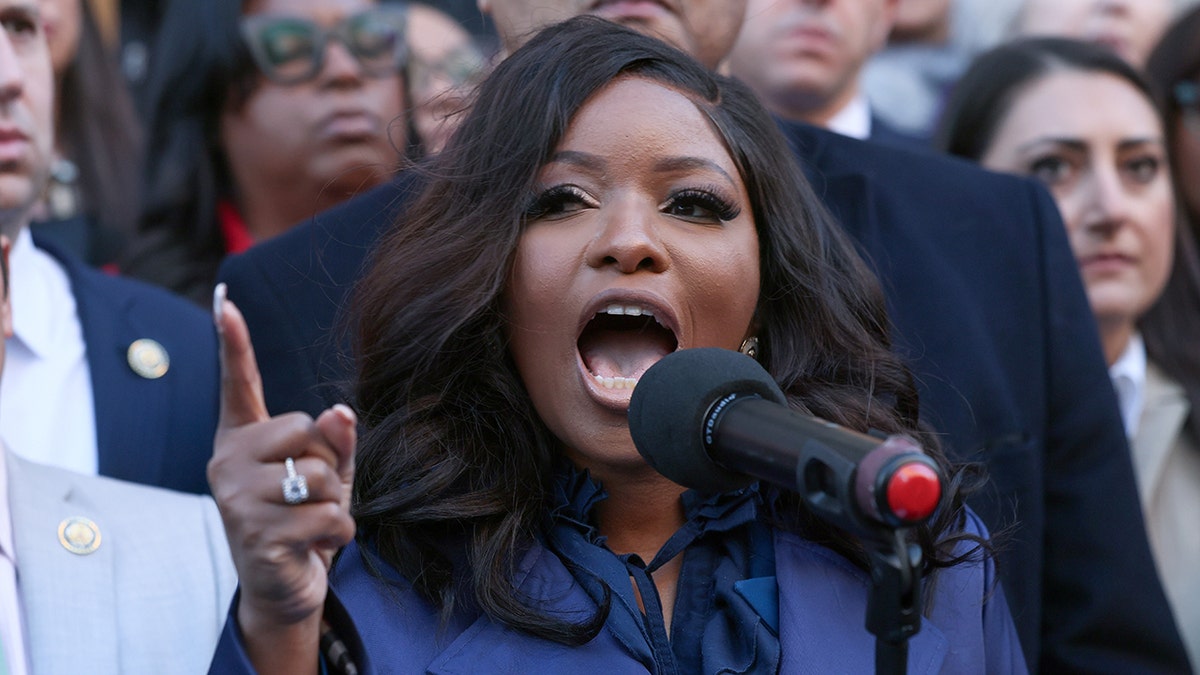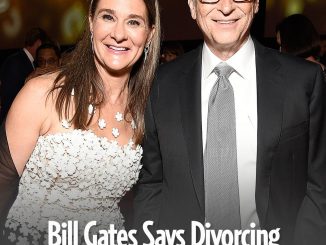In a gripping display of courage and conviction, Congresswoman Jasmine Crockett, a Black representative from Texas, turned a blatant act of racial aggression into a powerful indictment of systemic injustice during a live congressional hearing. This is the story of how truth walked into power and refused to back down, igniting a national conversation about race, justice, and accountability.

The setting was Washington D.C., a Wednesday morning filled with anticipation and tension. Hearing Room 4A was packed, the air thick with the expectation of a pivotal moment. The hearing on racial bias in America’s criminal justice system was not just another congressional session; it was a stage for witnessing whether justice in the country truly saw everyone equally.
On one side sat Jasmine Crockett, a former criminal defense attorney with an impressive courtroom record. She embodied a new wave of American leaders: young, brilliant, and unafraid to confront systemic issues with both passion and evidence. Across from her was Pam Bondi, the former Attorney General of Florida, known for her “tough on crime” policies that had drawn criticism for their disproportionate impact on minority communities.
The hearing began with the usual formalities, but the atmosphere was charged. As Crockett began to speak, Bondi interrupted with a shocking remark, telling her to “go back to Africa.” The room fell silent, a silence not of shock, but of strategic calculation, a terrifying pause before the storm.
Crockett did not flinch. She remained perfectly still, her eyes locking onto Bondi with a calm, precise focus. In a measured tone, she asked, “I’m sorry, what did you just say?” The question emptied the room, forcing everyone to confront the ugliness now hanging in the air, no longer deniable.

Bondi, with a rehearsed calm, repeated her statement, solidifying the insult as a matter of public record. The silence that followed belonged to Crockett, and everyone knew it.
Instead of reacting with anger, Crockett stood, her heels clicking softly on the marble floor, and claimed the space. She spoke of her Texan roots, her father’s military service, and her mother’s selfless nursing. She spoke of her ancestors, who were brought to America in chains, their stories untold, their humanity denied. “You want me to go back to Africa?” she said, her voice steady as stone. “Let me tell you something: I was here before you were born.”
Crockett’s words were not accusatory, but revelatory. She exposed the painful truth of America’s history, a truth that had been buried beneath layers of privilege and denial. “You look at me and see someone who doesn’t belong,” she said. “But I’m not the guest here, I’m the foundation.”
Having claimed her history, Crockett turned to the evidence. She retrieved a plain black leather folder, stamped “Confidential DOJ, Florida 2018,” and held it up for all to see. This report, she explained, was a federal analysis of racial bias in Florida’s criminal prosecution system during Bondi’s tenure as Attorney General.

With methodical precision, Crockett turned the pages, revealing damning statistics: Black defendants received sentences 32% longer than white defendants for the same charges. Prosecutors showed a documented pattern of upgrading charges when the defendant’s surname appeared to be African or Hispanic. 87% of wrongful arrests occurred in predominantly Black or Latino neighborhoods.
Finally, Crockett read a direct quote from a memo written by Bondi’s own senior legal advisor: “There is pressure from upper leadership to crack down harder on minority suspects, especially in election years, in order to maintain support from the base.”
The silence in the room was suffocating. All eyes were on Crockett, who stood like a stone, steady and unshaken. She closed the folder, her gaze fixed on Bondi, and said, “You told me I should go back to Africa. Maybe you should go back and read the documents from the country you helped run.”
Crockett’s words were not bullets, but bricks, stacked into a wall of reality no one could climb over. She had exposed the selective justice, the manufactured fear, and the system built to preserve power for the few.
The hearing ended, but the moment didn’t. A clip of the exchange went viral, spreading across social media platforms like wildfire. It resonated with millions, breaking through the noise of the news cycle and sparking a national conversation about race and justice.

The clip was shared by veterans, teachers, nurses, and ordinary citizens from all walks of life. It reminded them of their own silences, their own fears, and the times they’d wanted to speak up but hadn’t. It wasn’t just about race, but about dignity, and how far we still have to go.
Analysts scrambled for statements. Bondi declined to appear, her office releasing a terse “no comment.” The silence only confirmed what Crockett’s voice had already made plain.
In the aftermath, Pam Bondi sat alone, the weight of her actions crushing her. She recalled a time when a Black classmate, Marcus Daniels, had intervened to save her from a potentially career-ending situation. She realized she had never returned the favor, never acknowledged the privilege that had shielded her from the realities faced by so many others.
Bondi began to type a message, a message of accountability and regret. “We don’t always notice the water we’re swimming in until someone drains the pool,” she wrote. “And this week, you drained it for me.” She didn’t send the message, not yet, but she was ready to feel the weight of what she’d been a part of and what she could no longer ignore.

Meanwhile, in a classroom in Mississippi, a teacher showed the clip to her students. She wanted them to think about what they had seen, not just what was said, but how it was said, the facts that were brought, the way Crockett stood her ground, and the way the room changed. “Courage is not the volume of your voice,” she wrote on the board. “It’s the weight of your truth.”
The story of Jasmine Crockett is a story about the power of truth, the courage to speak it, and the transformative potential of listening. It’s a reminder that injustice doesn’t arrive with fireworks, but in small decisions, in buried memos, in shrugged shoulders, and in silences. And it’s a call to action, a call to dismantle injustice in our classrooms, our courtrooms, and our living rooms, by refusing to look away, by refusing to laugh it off, and by refusing to back down.
Jasmine Crockett’s power wasn’t in her anger, but in her grace, a grace rooted in pain, a grace that didn’t excuse, didn’t forget, but chose to speak instead of scream. And now, it’s our turn to carry that truth forward, to create a world where justice is not just a word, but a reality for all.


